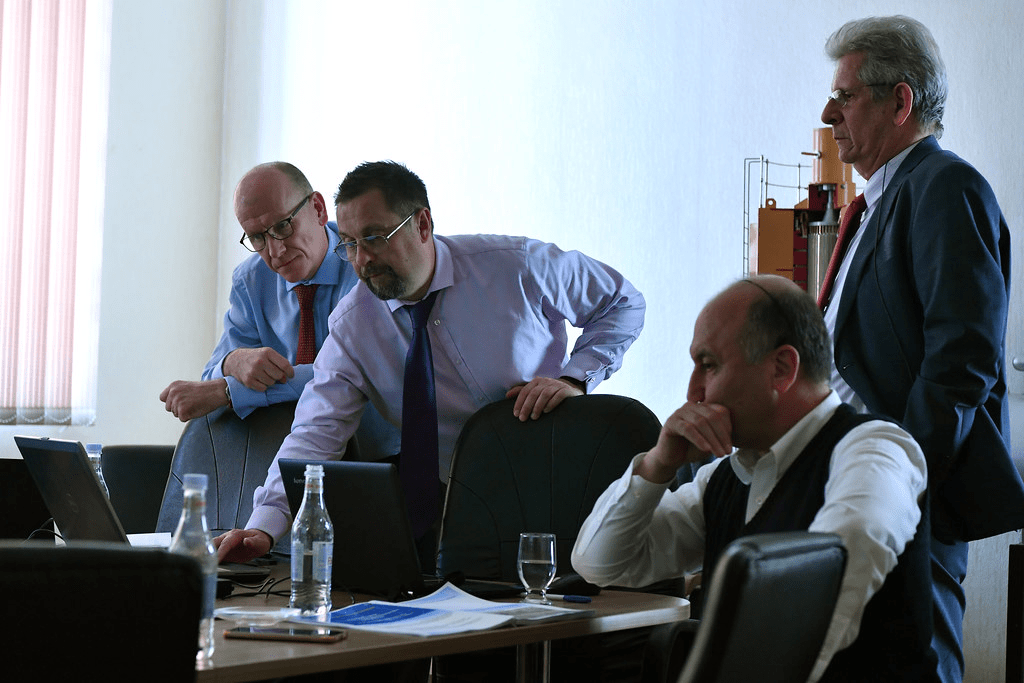Defining and understanding the role of PR in a Philippine organization

Whether in the Philippines or overseas, behind some of the world’s most-admired companies, is a Public Relations (PR) team that knows what it’s doing. This is because the role of PR is a vital part of any organization or company’s success.
PR professionals are responsible for building and maintaining positive relationships with various stakeholders, managing the organization’s reputation and image, driving brand awareness and engagement, and providing strategic counsel to senior leadership.
I guess you found this blog post because you want to understand the role of PR in more detail and discuss the importance of PR for different Philippine industries, yes?
We’ll, let’s proceed.
1. Building and Maintaining Relationships with Stakeholders

One of the primary roles of PR is to build and maintain relationships with key stakeholders.
Who are they?
They are your customers, employees, investors, the media, and the general public. Effective PR involves identifying and engaging with these stakeholders and building long-term relationships based on trust, transparency, and effective communication. This is true everywhere, including the Philippines.
For example, suppose you, as a PR pro, work with a retail company. In that case, you will strive to build relationships with customers by engaging with them on social media, responding to their feedback, and developing campaigns that resonate with their interests and values.
You could also build relationships with employees by communicating company goals and values, recognizing their achievements, and providing opportunities for professional development.
PR is critical in the Philippine healthcare industry because it helps build trust and credibility with patients and healthcare providers. Healthcare organizations must maintain a positive public image to attract patients and investors while ensuring they are seen as leaders in their field. Filipino PR professionals in healthcare may focus on developing educational resources and support for patients, promoting healthy living and disease prevention, and building relationships with healthcare providers.
2. Managing Reputation and Image

PR professionals also play a critical role in managing the organization’s public image and reputation. Here in the Philippines, Filipinos are beginning to support brands that do good.
You should monitor media coverage, respond to negative feedback, and develop strategies to address potential issues or crises. By effectively managing the organization’s reputation and image, you can help build trust and credibility with your key audiences and maintain a positive public perception of the organization.
PR plays a critical role in managing the organization’s public image and reputation in the technology industry. With rapid technological changes, companies must keep pace with changing trends and developments to remain competitive. PR professionals in technology may focus on addressing negative Philippine media coverage, developing positive messaging, and positioning the company as a leader in its industry.
PR is essential in the non-profit industry because it helps build awareness of the organization’s mission and impact in the Philippines. Non-profit organizations rely heavily on public support and donations to achieve their goals, and positive public perception is critical to their success.
PR professionals in non-profit organizations may focus on developing messaging and content highlighting the organization’s achievements, building relationships with donors and volunteers, and addressing any negative perceptions or misconceptions about the organization.
3. Driving Brand Awareness and Engagement

Another critical role of PR is to drive brand awareness and engagement among target audiences. This role involves developing and executing campaigns that promote the organization’s brand and increase awareness among key stakeholders.
As a PR professional, you are responsible for creating compelling messaging and content, identifying and engaging with Filipino influencers and Philippine media outlets, and leveraging social media and other digital channels to reach target audiences.
For example, as a PR pro working for a food and beverage company, you will develop campaigns that highlight the company’s commitment to sustainability and the use of locally-sourced ingredients. You will also engage with food bloggers and influencers on social media, encouraging them to share their experiences with the company’s products.
Driving brand awareness and engagement is also essential in the financial services industry because it helps build trust and credibility with potential customers and investors. Financial services companies must maintain a positive public image to attract and retain customers and ensure they are viewed as trustworthy and reliable.
PR professionals in financial services may focus on developing thought leadership content, such as white papers or blog posts, that position the company as a trusted authority in its industry. Doing so also helps build relationships with potential investors and address negative perceptions or misconceptions about the company.

Finally, PR professionals provide strategic counsel to senior leadership, helping shape the organization’s messaging and positioning and giving guidance on communicating with key audiences.
Effective PR entails a strong understanding of the organization or the company’s goals and values. It also requires the ability to anticipate potential issues and provide proactive advice — something that must be decided and mandated from the top down in an organization.
PR can provide the most value in this scenario and takes its place at the decision-making table.
PR is crucial for building customer and employee relationships and driving brand awareness and engagement.
You may leverage social media and other digital channels to reach different target audiences.
PR is critical in various organizations or companies because it helps build and maintain positive relationships with stakeholders, manage the organization’s reputation and image, drive brand awareness and engagement, and provide strategic counsel to senior leadership.
Each entity may have unique challenges and opportunities.
PR professionals must tailor their strategies and tactics to meet their organization’s or company’s specific needs.
5. Challenges Faced by PR Professionals
PR work may be rewarding as a whole, but it can also be very stressful at times.
In the Philippines, PR professionals face several challenges in their day-to-day work. These challenges can arise from technological changes, shifts in consumer behavior, evolving media landscapes, and other factors.
Here are some of the most common challenges faced by PR professionals.
1. Managing Reputation

One of the primary roles of PR professionals is to manage their organization’s or their clients’ reputation.
This task can be very challenging in the Philippines, particularly in the age of social media, where negative news or rumors can quickly go viral and damage a company’s image.
PR professionals must constantly monitor the media landscape and respond quickly and appropriately to negative coverage or crises.
2. Maintaining Relationships

Building and maintaining relationships with stakeholders is another essential aspect of PR.
Building solid relationships with journalists, influencers, and key stakeholders is a never-ending battle. These stakeholders can receive numerous daily pitches and requests from agencies with much bigger budgets than you.
With the state of the Philippine economy, some people are motivated by the lure of money. Journalists are being pressured into securing ads and sponsorships.
You must be creative and strategic in your approach to building relationships and tailor your communications to each stakeholder’s specific needs and interests.
3. Measuring Success

Measuring the success of PR campaigns and initiatives has always been a challenge.
While media clippings in a PR campaign can easily be counted, quantifying the outcome is different. Metrics such as media coverage and social media engagement provide insights into PR efforts’ success.
Showing before skeptical management how these metrics connect to tangible business outcomes such as increased sales or brand awareness is where all the stress comes in.
It is vital that before you begin a PR campaign, you and the management are in agreement with what the KPIs are and that you’d know how to measure these KPIs.
4. Adapting to Changes

The media landscape is constantly evolving, and PR professionals must be able to adapt to changes in technology, consumer behavior, and media consumption habits.
For example, there was a time when all you had to worry about were the traditional media.
The rise of social media has significantly changed how people consume and share news, which has implications for PR strategies and tactics. It’s not just one social media network but a whole gamut.
Just when you thought you were getting the hang of one particular platform like Facebook, a new one sprouts along, like TikTok, Twitch, and Discord.
PR professionals must stay up-to-date with the latest trends and technologies and be willing to adapt their strategies and tactics accordingly.
5. Working under pressure

Deadlines are a part of life. It’s like death and taxes. In PR, there’s a deadline lurking in every corner.
PR professionals often work under tight deadlines and high-pressure situations, particularly when responding to a crisis or managing a negative news cycle.
This issue can be very stressful and challenging, especially when management calls every minute for an update you don’t have. You should have a cool head, strong organizational skills, and the ability to work effectively under pressure.
Conclusion

The role of PR in an organization or company is critical to its success.
By building and maintaining relationships with stakeholders, managing the organization’s reputation and image, driving brand awareness and engagement, and providing strategic counsel to senior leadership, PR professionals can help achieve specific business objectives and drive the organization’s overall success.
In a rapidly-changing Philippine business landscape, effective PR has never been more critical.
